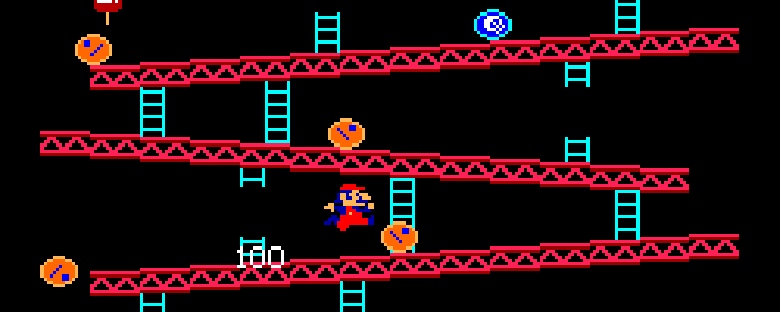Reviews
Seth Gordon
USA, 2007
Credits
Review by Rumsey Taylor
Posted on 13 March 2007
Source 35mm print
Related articles
In Pac-Man you’re set in a maze without an exit, and from the start face an onslaught of enemies that drift toward you from multiple directions. A level will be completed, and another, positing identical endurances, will begin. It is a game of simplicity, repetition, and oppression. Addictive and without formal conclusion, it is an epitome of classic gaming.
To be renowned for mastery of this and other classic arcade games one must demonstrate exemplary eye-hand coordination and extraordinary patience. Billy Mitchell was the first to record a so-called perfect game of Pac-Man, deemed by completing all 256 of the game’s levels (after which a bug automatically defaults the session), and acquiring every bonus (this includes the digestion of every blue-rendered ghost, which, if you’re unfamiliar, verges on the impossible). Mitchell’s achievement required six hours in front of an arcade cabinet.
The first perfect game in Pac-Man is among a handful of near-insurmountable records that Mitchell holds in arcade gaming. He speaks of his accomplishments with total conceit, and his demeanor is at least partially earned, having enamored him with an immense, if peculiar, celebrity in a circle obsessed with keeping score.
The King of Kong introduces many involved in this culture, most of whom are affiliated with Twin Galaxies, a organization in Iowa that officiates a database of world records for videogames. We meet one of the referees, his living room an impromptu warehouse of gaming sessions captured on videotape, submittals of potential records, some, if not most of which are several hours long. One comes from a Steve Wiebe, a father and middle-school teacher from Washington state and Donkey Kong addict. The entire taping is more or less over Wiebe’s right shoulder, his face reflected — and static — in the arcade screen, and it is uncommonly more dramatic than most of the other videotapes sent to Twin Galaxies. For over two hours, Weibe plows through Donkey Kong, entertaining the cries of his children in another room, and by the end surpassing one of Billy Mitchell’s records, one nearly twenty years old.
It is a general consensus that Donkey Kong is the most difficult within a modest canon of old arcade games. Later levels incorporate fireballs, barrels, and pistons that hop unpredictably down the screen. Weibe’s strategy is well studied; zooms of Donkey Kong fill the composition, his Mario so precise his movements are measured by the pixel. He even explains the game’s patterns, drawing diagrams on the screen with chalk. Up until this point the film is fairly exploitative; the practice or the culture elicits laughter, at Mitchell’s collection of novelty ties or how Weibe’s dedication to his game almost exceeds his parental responsibilities. But this aspect of exploitation is lost once Weibe has his record questionably rejected by Twin Galaxies.
The King of Kong is only ostensibly about the particulars of these games and the men (all of them suburban white males no younger than their mid-30s). Mitchell and Weibe become exemplars of competition in spite of the film’s tendency towards exploitation; they remain caricatures until you realize how important this is to them. (His record rejected, Weibe is seen in tears at one point.) Theirs may be a curious sort of renown, but by the end you are enraptured in their struggle to declare and maintain it.
We don’t do comments anymore, but you may contact us here or find us on Twitter or Facebook.



